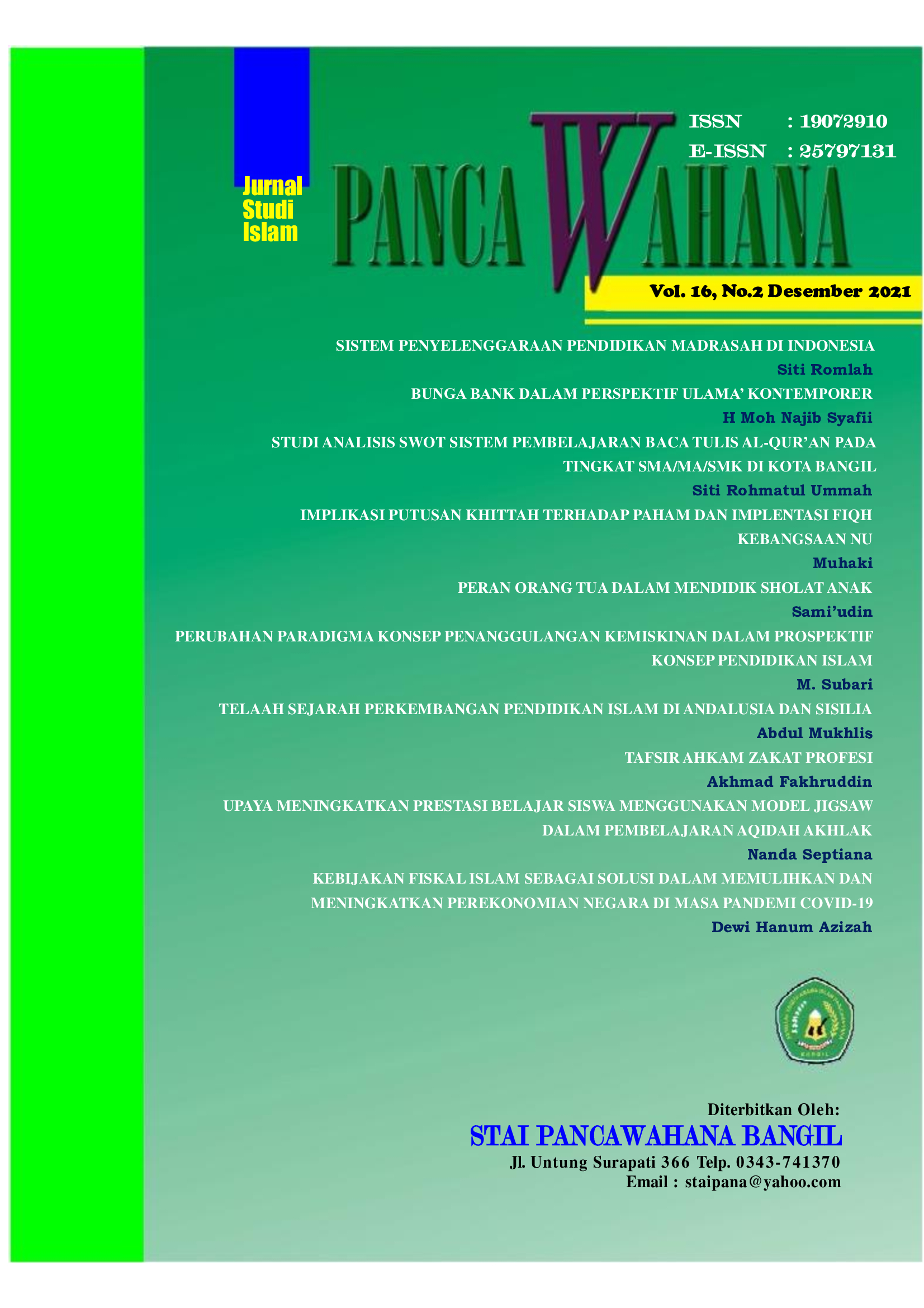Muhakki IMPLIKASI PUTUSAN KHITTAH TERHADAP PAHAM DAN IMPLENTASI FIQH KEBANGSAAN NU
Implications, NU Khittah, NU national fiqh.
Abstract
Abstrak since the beginning of the emergence of NU has been thick with the nuances of national fiqh. In its development, this understanding is closely related to practical politics. However, Khittah's decision at the 27th Situbondo Congress in 1984 required NU to distance itself from practical issues, at least NU was no longer political but a socio-religious organization. This of course has implications for the understanding of his national fiqh, because there is a distance between NU and practical politics. This study uses a descriptive analysis approach in the type of literature review. Findings: First, NU accepts Pancasila as the sole principle because it is seen as not contradicting Islamic values. Second, NU as a jam'iyyah organizationally no longer depends on political parties or other organizations. Third, the implication is that the principles of Islamic teachings are formulated to be applied in national practice. The principles of shura, al-'Adalah, al-Hurriyah, and al-musyawah are seen as relevant in solving national problems. The Khittah decision as a principle of thinking, thinking and acting must be in accordance with NU's AD/ART, so that the naive behavior of various parties to control certain things is relative. Every political, social and cultural action cannot be claimed in accordance with the NU Khittah, then understanding and actions that can be avoided and the solidity of the NU's in solving various populist and national problems can be carried out in accordance with the Aswaja principles and the main organizational rules. Keywords: Implications, NU Khittah, NU national fiqh.
Published
2021-12-29
Section
Articles
Hak Cipta
Jurnal Studi Islam Panca Wahana ini bisa digunakan bagi akademis dan juga khalayak luas.




